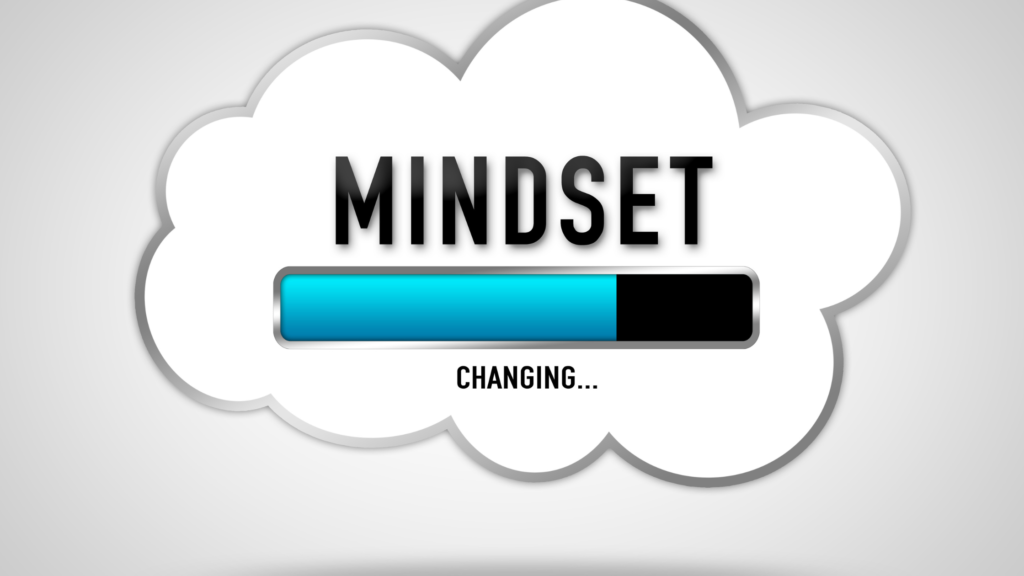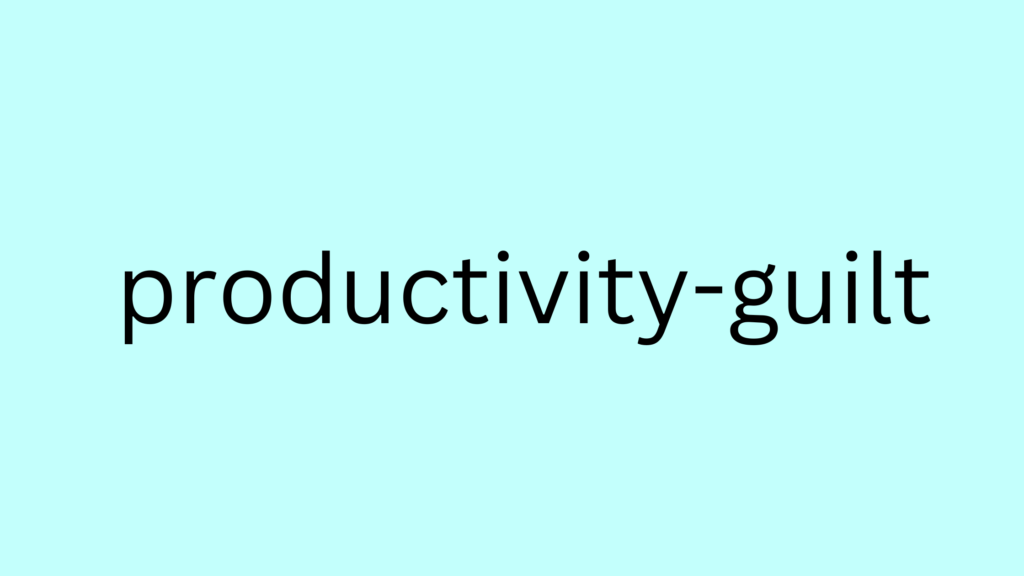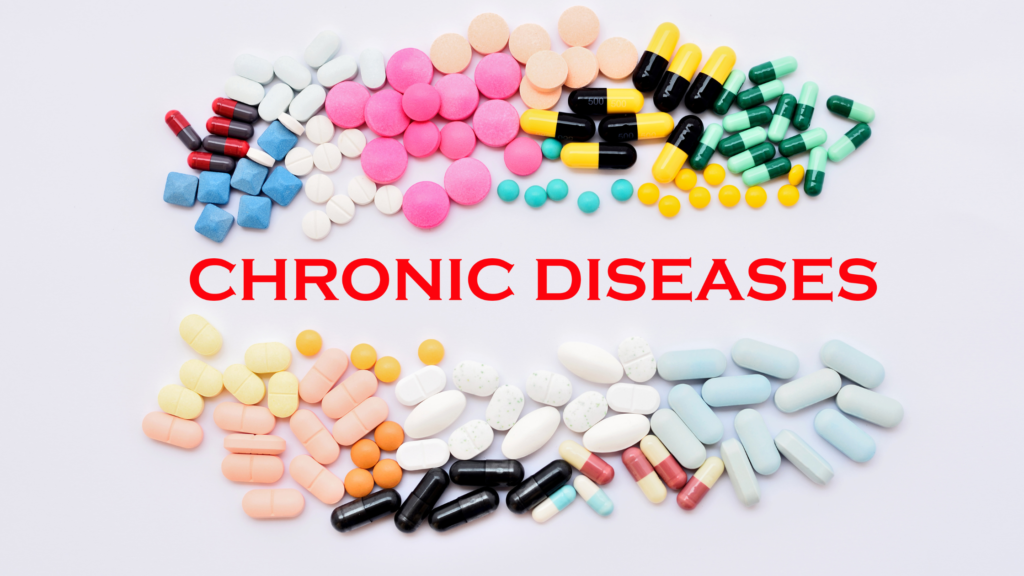productivity-guilt; It’s Sunday evening, and you’re cozied up on the couch, sipping a warm cup of tea (or a glass of wine) while scrolling through social media feed. Your plan was to relax and unwind, but suddenly, a wave of guilt washes over you. Why? Because your friend just posted a photo of her “productive weekend”—a meticulously organized workspace, a completed to-do list, and a caption that proudly declares, “Seize the day, every day!” You feel like you’ve wasted your weekend, and that nagging voice in your head starts reminding you of all the things you “should” have done.
Sound familiar? If so, you’re not alone. We’ve all been there—it’s called “productivity guilt.” That feeling of inadequacy that haunts us whenever we dare to take a break or fail to accomplish every task on our never-ending to-do list.
Some people will try to tell you that this is a good thing; that this is a motivator. I disagree. Strongly. And today we’re going to talk about why productivity guilt is harmful and what we can do to break free from this unhealhy mindset.

Defining Productivity Guilt
Okay, let’s get to the point: what is “productivity guilt”? In simple terms, it’s that nagging feeling that you’re not doing enough, even if you’re doing a lot. And trust me, I get this feeling all too well. As someone with chronic illnesses, I often have to listen to my body and rest. While I’m resting, though, that guilt starts creeping in—I start thinking about all the work I could be doing for my business or all the ways I could be there for my family. It’s like I can’t win.
The worst part?
Productivity guilt doesn’t just stick to one area of your life; it spreads everywhere. You might be having a lovely dinner with your family, but your mind is on the unread emails in your work inbox. Or maybe you’re trying to enjoy a good book, and your eyes drift to the laundry that’s piling up. You could even be laying in bed, trying to sleep, and your brain is buzzing with all the things you didn’t check off your to-do list today.
And even when you are productive—let’s say you’ve finished a huge project—instead of giving yourself a high-five, you’re already worried about the next big thing on your list. That’s the essence of productivity guilt.
So, this is the mental maze we find ourselves in. It’s sneaky, it’s everywhere, and honestly, it’s draining. But the first step in solving any problem is understanding it, right? So now that we’ve nailed down what productivity guilt is, we can start talking about how to kick it to the curb.
The Emotional Costs: What’s Happening Under the Hood?
Let’s take a moment to talk about how productivity guilt messes with our heads, literally. When we’re wound up about not doing “enough,” our body releases a hormone called cortisol. Originally, cortisol was Mother Nature’s way of kicking us into high gear for life-or-death situations. But in the modern world, it gets activated just by thinking about our overflowing email inbox. Over time, too much cortisol can contribute to anxiety and depression. Trust me, it’s like having an alarm that never turns off and it wears you out mentally and emotionally.
And there’s more. Normally, when we accomplish something, our brain rewards us with a feel-good hormone called dopamine. Think of it as your brain’s way of giving you a high-five. But when you’re constantly stressing over what you haven’t done, that dopamine high-five is more like a weak handshake. The lack of dopamine can actually sap your motivation and lead to feelings of low mood.
Let’s also talk about cognitive load.
Imagine your brain as your computer desktop: it can only handle so many open tabs before things start slowing down. Being perpetually guilt-ridden about productivity eats up precious mental bandwidth, making it even harder to focus and adding to the sense of overwhelm.
As someone with chronic illnesses, this emotional rollercoaster hits differently. My body already demands downtime, and when guilt creeps in, it’s like pouring salt on an open wound. The emotional load becomes that much heavier.
So there it is, productivity guilt isn’t just an annoying feeling, it can seriously impact your mental health. And I get it, this is a lot to take in. But don’t worry, coming up we’ll explore how to turn things around.
Why We Fall Into Productivity Guilt: The Forces at Play

Before we can kick productivity guilt to the curb, we need to understand what’s fueling it. When we dissect the issue, three key factors often pop up: societal pressure, psychological influences, and physiological triggers. Let’s dive a little deeper into each.
Societal Pressure: The Hustle Trap
In today’s culture, the idea of constantly hustling has been elevated to near-sainthood. Everywhere we turn, we’re bombarded with messages pushing us to be more, do more, achieve more. Think about it: how often do you scroll through social media and see posts glamorizing the 4 a.m. wake-up, the twelve-hour workday, or the seven-day workweek? The mantra seems to be, “if you’re not grinding, you’re not thriving.”
And it’s not just social media. Even well-meaning friends and family can contribute to this hustle mentality, praising us when we’re swamped with work and subtly questioning us when we take time off. This constant societal drumbeat can be incredibly pervasive, and it instills the idea that our worth is intrinsically tied to our productivity. No wonder we feel guilty when we take a break! But let’s get one thing straight: this race with no finish line isn’t the path to a fulfilling life, nor is it the universal measure of success.
The Psychological Factor: Old Beliefs Die Hard
Alright, so now that we’ve tackled societal pressures, let’s shift gears and talk about the psychological side of things. You may have heard of the “Protestant Work Ethic,” which is basically this age-old idea that hard work is not just good but virtuous. On the flip side, it paints laziness as not just unproductive but literally sinful. Now, I know what you’re thinking: “I don’t consciously believe that!” But here’s the thing, these sorts of beliefs seep into the collective consciousness over time, influencing us in ways we don’t even realize.
ingrained attitudes
These ingrained attitudes impact our emotions around work and productivity. They can be especially insidious because they operate in the background, subtly shaping how we feel about taking a break or indulging in some “me-time.” Even if we don’t think we subscribe to these beliefs, they can still affect us. For example, ever feel a pang of guilt when you decide to Netflix and chill instead of working on that project? Yup, that’s the psychological weight of centuries of cultural beliefs telling you that relaxation is somehow a moral failing.
Understanding that these age-old beliefs are still influencing our present-day thoughts and feelings is crucial. It helps us recognize that our guilt often isn’t even a response to our own authentic beliefs or needs, but rather these outdated cultural norms that we’ve absorbed without even realizing it.
Physiology: Your Body’s Mixed Signals
Alright, let’s get down to the nitty-gritty—the physiological factors. You remember that cortisol stuff we mentioned earlier, right? Okay, so cortisol is a hormone that our body releases in response to stress. But here’s the twist: it’s not inherently bad. In fact, in the right amounts, cortisol gives us that “let’s go!” kick of energy we sometimes need. It boosts your focus, helps you meet deadlines, and can even improve your memory temporarily. Essentially, it’s your body’s own little pep talk.
But here’s where it gets tricky.
While a little burst of cortisol is great for short-term challenges, our bodies and minds aren’t designed for that “always-on” lifestyle we talked about earlier. If you’re continuously pushing yourself, cortisol levels can stay elevated, and that’s where the problems start. Not only can it lead to physical health issues like sleep disruption and a weakened immune system, but it can also muddy your emotional waters. Elevated cortisol can make you more susceptible to feelings of anxiety and stress, which, guess what, makes you feel even guiltier about not being productive. It’s like a hamster wheel of physiological and emotional chaos.
Adding to this mix is the fact that sometimes our bodies are telling us to slow down, especially for those of us dealing with chronic illnesses. Learning to interpret what our bodies are actually saying—as opposed to what we think they should be saying—is another key piece in untangling ourselves from productivity guilt.
The Chronic Illness Conundrum: When the Body Speaks, We Need to Listen
If you’re someone dealing with chronic illnesses like me, this productivity guilt thing is on a whole other level. You’re not just juggling societal expectations and psychological imprints; you’ve also got a body that has its own set of rules and limitations. In this scenario, the productivity guilt cocktail is more like a Molotov cocktail, ready to ignite at any moment.
You’ve got everyone around you hustling, media telling you that you’re falling behind if you’re not constantly “on,” and these deeply ingrained beliefs that you should be doing more. But then there’s your body, maybe whispering, maybe shouting, “Hey, stop, I need a break.” productivity guilt It’s not just a battle of the mind; it’s a battle of the body too. And that can make you feel like you’re stuck between a rock and a hard place. You want to listen to your body, but everything else around you is saying, “Push through!”
For those of us with chronic conditions

For those of us with chronic conditions, it becomes incredibly important to fine-tune our listening skills—not to societal expectations, not to old belief systems, but to our own bodies. The consequences of ignoring those signals can be more dire, ranging from flare-ups to serious health complications. And yet, even knowing the stakes, that pesky productivity guilt can still creep in, making us second-guess our very real need for rest and self-care.
Navigating productivity guilt with chronic illness
Navigating productivity guilt with chronic illness adds an extra layer of complexity, but it also provides a unique opportunity. It forces us to really interrogate and challenge those external and internalized messages about worth and productivity. Because sometimes, the most productive thing you can do is rest, and there’s absolutely no shame in that.
So, as you can see, falling into productivity guilt isn’t entirely your fault. It’s a mix of societal messaging, psychological influences, and even your own body chemistry. But the good news? Awareness is the first step in breaking the cycle.
lls, I’m well-equipped to guide you on this path.
Here are a few of our most recent blog posts:
- Time Management Hacks for ADHD: How to Keep Your Focus and Get Things Done!
- Tips on Boosting Self-Confidence for Teens
- Common Meditation Problems
- Common Goal Setting Obstacles and How to Maneuver around Them
- Committing Yourself to Positive Actions
If you’d like to follow me on social media, you can find all of my links HERE
Get It Done Faster!

Just click the picture to get your free copy now!
Includes free eBook AND free workbook, including worksheets and instructions for each of the techniques!
Designed specifically for those on the go, dive deep into the art of rapid productivity. Every moment matters; make the most of it.
In a world that incessantly pushes for more hours, more hustle, and more grind, a revolutionary approach is quietly rewriting the rules of productivity. Have you ever found yourself staring at the clock, wondering where the day went and why your to-do list remains untouched? You’re not alone. The common belief is that longer hours equate to more accomplishments, but what if the key isn’t more time, but how you use it?
Introducing “Get It Done Faster” — a game-changing technique that capitalizes on our brain’s natural rhythms and energy peaks. Instead of laboring for hours on end and burning out, imagine achieving more in short, focused intervals, punctuated by refreshing breaks. It’s not about working harder; it’s about working smarter. This method, inspired by tools like the Pomodoro technique and the Eisenhower matrix, taps into the sweet spot of productivity, ensuring that you’re operating at your peak when it matters most.
The links on this page may be affiliate links. That means that if you make a purchase using these links, I may receive a commission. This does not change the cost for you.


Leave a Reply